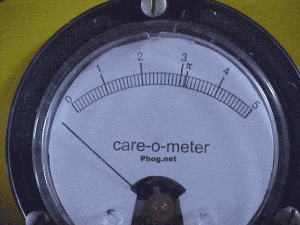Socialism. That word is one of the largest and most feared taboo words since the end of the Second World War. That word carries with it death, poverty, starvation, the image of concentration camps, mass slaughter, holocaust, and the loss of millions upon millions of lives. When one mentions the word Socialist the people of the United States shudder with fear. The past is controlling the present, the old ideals, conceptions and the outside implanting in the minds of the people as to what defines evil. When one claims today to be a Socialist in the United States, one of two reactions are brought forth as a result of this declaration. Either they are looked upon with doubt, judgement and fear, or they are looked at with judgmental humor, a lack of believing that they truly identify with this, and are merely saying so in the “hipster” sort of way in a vain attempt to be different.

Is this truly what American Socialists are, posers, or radicals, no. It seems in 2015 many young American’s are Socialist, or identify with the party platform, either consciously or unknowingly.
Firstly, Socialism does not promote massacre, the damnation of the minority, the silencing of the people for one supreme leader. It does not promote concentration camps, poverty, or any of those extreme assumptions that are unfairly interlaced with its definition, it is imperative that this is made clear before one continues to read this article.

So what is the Socialist Party in the United States in particular, and why are many if not all Millennials a part of this party? The answers are laced in the Constitution of the Democratic Socialist Party of America, specifically Article II. Listed Below is this very article from the Constitution, and consider whether or not any of these statements reflects your feelings at one time or another…
Article II. Purpose
We are socialists because we reject an economic order based on private profit, alienated labor, gross inequalities of wealth and power, discrimination based on race and sex, and brutality and violence in defense of the status quo. We are socialists because we share a vision of a humane social order based on popular control of resources and production, economic planning, equitable distribution, feminism, racial equality and non-oppressive relationships. We are socialists because we are developing a concrete strategy for achieving that vision, for building a majority movement that will make democratic socialism a reality in America. We believe that such a strategy must acknowledge the class structure of American society and that this class structure means that there is a basic conflict of interest between those sectors with enormous economic power and the vast majority of the population.
Upon an initial reading of this first article of the Constitution it seems almost as though it is too idealistic, too utopian. How can a political party achieve these basic, recognized, human values, that we all claim to share? In the past we have seen clearly that parties cannot achieve an overpowering of these basic aspects of human hatred and ignorance. They seem imbedded in our system at times.

However what needs to be considered is that many political parties use these claims as mere rhetoric. They consider them simply too myopic, too straight forward to be brought to the table when it comes to campaigns, or the basics of the party. For various parties it comes down to “big government” versus “small government.” Not humans for humans. This is what Socialism addresses, within the first article of its Constitution.

However this does not appear to bring to light the apparent doubt in the party being far too idealistic. Consider this however, are these not our basic human emotions? Equality, liberty, and in today’s society more equality of opportunity for those taken advantage of? This may be why it appears too utopian, because we all take it for granted that we hold this true, yet we are unable to achieve it. Does that make it unachievable? Maybe. But a party that addresses it to the strength that Socialism does may bring our ethical, ideal beliefs ever stronger.
Many of us are indebted former students, many of us are unemployed, or poverty stricken while we witness those who relish and promote themselves and their riches through our struggles. The politicians are purchased not elected. Money Rules, not the People. This is what Socialism is, its what it is fighting against, it is for the people, not the dollar.
I am a Socialist, and so are you.
This article from Criticl.com written by a member of http://www.dsausa.org/constitution who reminds us how important history is to our civic responsibilities, so as not to confuse the current propaganda tsunami with actual lessons and events of the real past.






